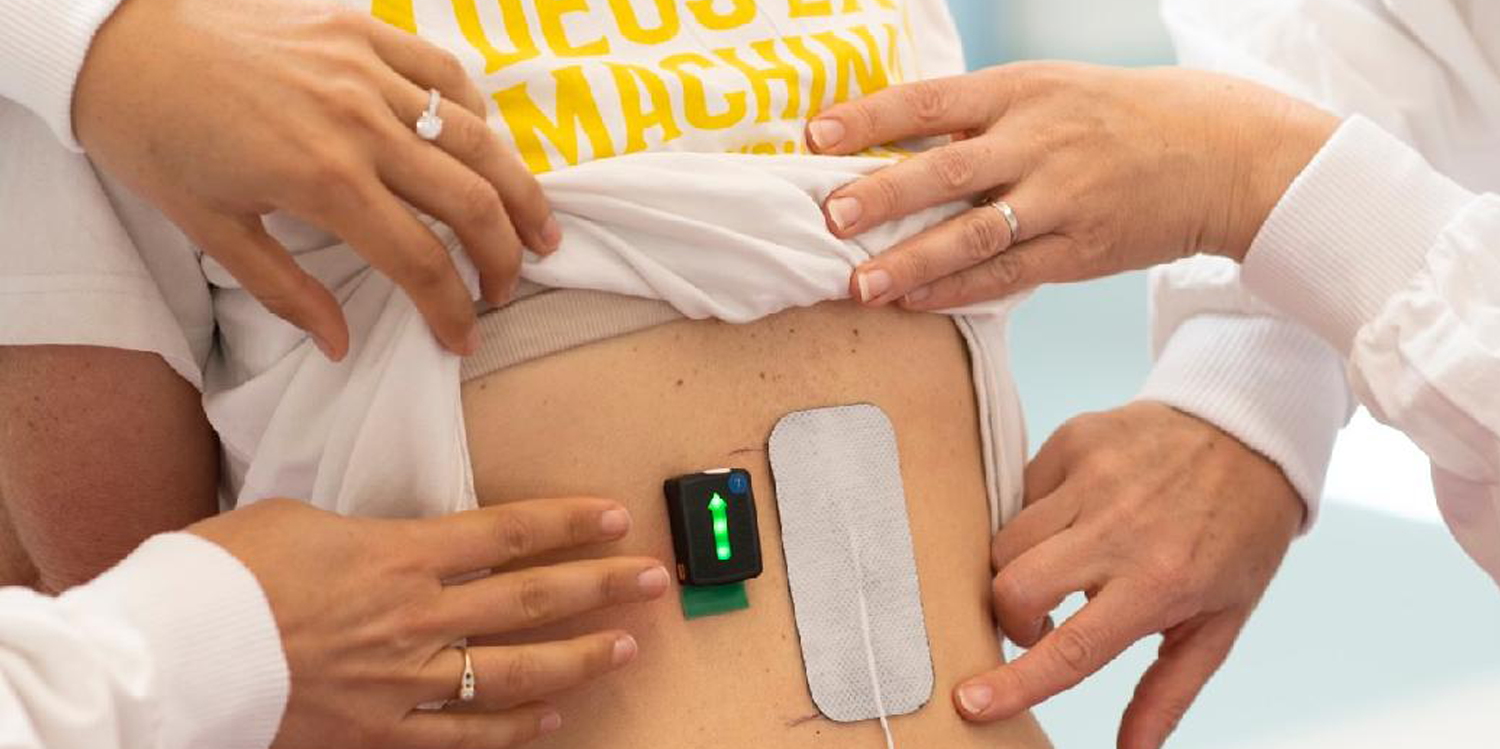 Experimental neurostimulation clinical trials for those with spinal injuries are set to take place in WA for the first time.
Experimental neurostimulation clinical trials for those with spinal injuries are set to take place in WA for the first time.
SpinalCure Australia has opened the State’s first clinical trial site for the therapy, which aims to assist those living with paralysis to regain movement and independence.
Two clinical trials are underway and are recruiting participants; one is specific to those with cervical spinal injuries and the other focused on those who are paraplegic and quadriplegic.
The trials use non-invasive neurostimulation delivered via electrodes placed on the skin, combined with physical therapy.
The trials are open to participants who meet the eligibility criteria and, while a formal referral isn’t required, GPs and specialists are encouraged to suggest participation to suitable patients.
The new site, based at NeuroMoves in Fremantle, is part of Project Spark – a national research initiative delivered in collaboration with Neuroscience Research Australia, Spinal Cord Injuries Australia’s NeuroMoves division, and The CatWalk Trust, and supported by the Insurance Commission of WA and the Medical Research Future Fund.
RELATED: Hope for spinal injury becomes reality
Until now, West Australians had to travel interstate to access experimental neurostimulation treatments.
A 2020 report estimated the lifetime cost of spinal cord injury to the WA economy to be more than $10.3 billion – making spinal cord injury one of the most costly and complex conditions to manage.
Duncan Wallace, executive director of SpinalCure Australia said there were a range of physical and mental benefits for participants involved in these trials, and support from trusted healthcare providers can play a valuable role in motivating involvement.
Mr Wallace, who lives with a spinal cord injury himself, said this was a major step forward for people in WA living with spinal cord injuries.
“It’s the first part of a program of exciting research we plan to bring to WA over the coming years as part of our upcoming National Roadmap to a Cure,” he said.
RELATED: Cervical disc replacements: the long-term evidence
The two trials are now underway in WA and are actively recruiting.
Get a Grip targets breathing and hand and arm function in people with cervical spinal injuries, while eWALK 2 is focused on helping paraplegic and quadriplegic participants stand and walk again.
Up to 20 people are expected to take part in each trial over the next three years.
Regional participants are actively encouraged to apply, with travel and accommodation costs fully covered.
RELATED: Advancements in managing spinal pain: A comprehensive approach
WA participant Annie Currie is already halfway through the Get a Grip trial and said the experience had brought both physical and emotional progress.
“The gains may seem small to others, but for me they’ve been huge – more control, more confidence, and a sense that things might still improve,” she said.
More information on participating in the trials can be found here.
Want more news, clinicals, features and guest columns delivered straight to you? Subscribe for free to WA’s only independent magazine for medical practitioners.
Want to submit an article? Email editor@mforum.com.au

